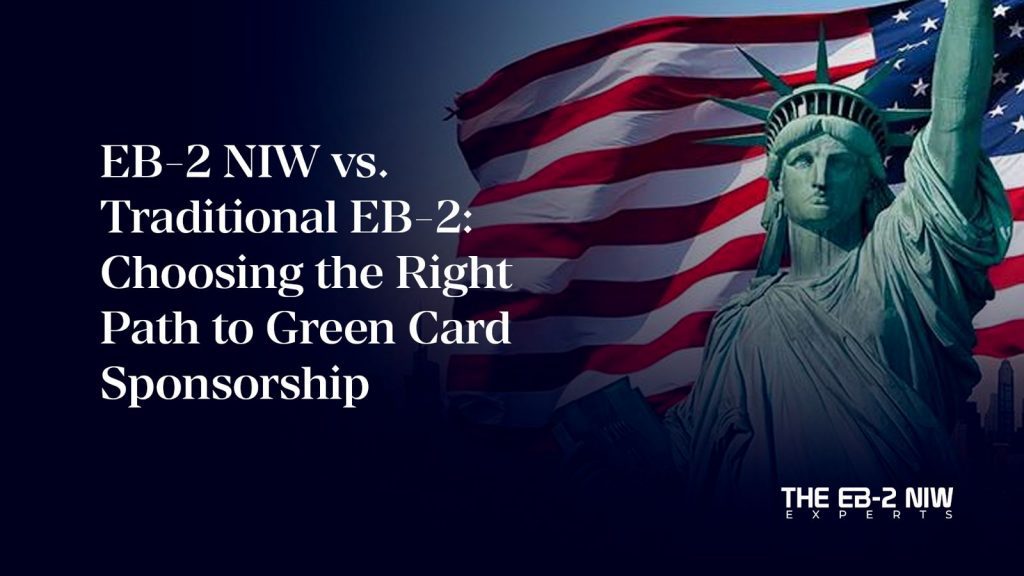The journey to obtaining a green card through the EB-2 visa category involves critical decisions that can significantly impact an applicant’s immigration experience. Among the choices faced by skilled professionals and individuals of exceptional ability is whether to pursue the EB-2 National Interest Waiver (NIW) or the traditional EB-2 route with employer sponsorship. This blog post aims to provide a comprehensive comparative analysis to help applicants make an informed decision based on their unique circumstances and aspirations.
The EB-2 NIW visa is designed for individuals who can demonstrate that their work is in the national interest of the United States. Here are key aspects to consider:
- Self-Petitioning: One of the primary advantages of the EB-2 NIW visa is that applicants can self-petition, eliminating the need for employer sponsorship. This grants individuals greater autonomy and flexibility in their immigration process.
- No Labor Certification Requirement: Unlike the traditional EB-2 path, which typically requires labor certification from the Department of Labor (DOL), the NIW waives this requirement. This streamlines the process and reduces administrative burdens.
- Employment Flexibility: NIW beneficiaries are not tied to a specific job or employer, allowing them to pursue opportunities in their field of expertise without constraints. This flexibility is particularly appealing to professionals seeking independence and career mobility.
The traditional EB-2 route involves employer sponsorship and a labor certification process. Here are key considerations:
- Job Offer Requirement: Applicants must have a job offer from a U.S. employer who is willing to sponsor their green card application. This requires demonstrating that the job role requires advanced degree qualifications or exceptional ability.
- Labor Certification Process: The employer must obtain labor certification from the DOL, which involves proving that there are no qualified U.S. workers available to fill the position and that hiring the foreign worker will not adversely affect U.S. workers’ wages and working conditions.
- Job and Employer Dependency: Unlike the EB-2 NIW, which offers employment flexibility, the traditional EB-2 path ties applicants to a specific job and employer throughout the green card process.
- Speed and Flexibility: The EB-2 NIW often has faster processing times due to the absence of the labor certification process and employer sponsorship requirements. It also provides greater flexibility in terms of job opportunities and career advancement.
- Requirement of National Interest: The EB-2 NIW requires applicants to demonstrate that their work significantly benefits the national interest of the United States, which can be challenging but offers a unique pathway for impactful professionals.
- Job Security and Stability: Traditional EB-2 applicants with employer sponsorship may benefit from greater job security and stability as their green card application is tied to their employer, providing a sense of continuity and support.
In conclusion, choosing between the EB-2 NIW and traditional EB-2 with employer sponsorship depends on factors such as autonomy, speed of processing, job flexibility, and the nature of the applicant’s work. Both paths offer distinct advantages and considerations, and applicants should carefully evaluate their priorities and consult with immigration professionals to determine the right path to green card sponsorship that aligns with their goals and circumstances.


